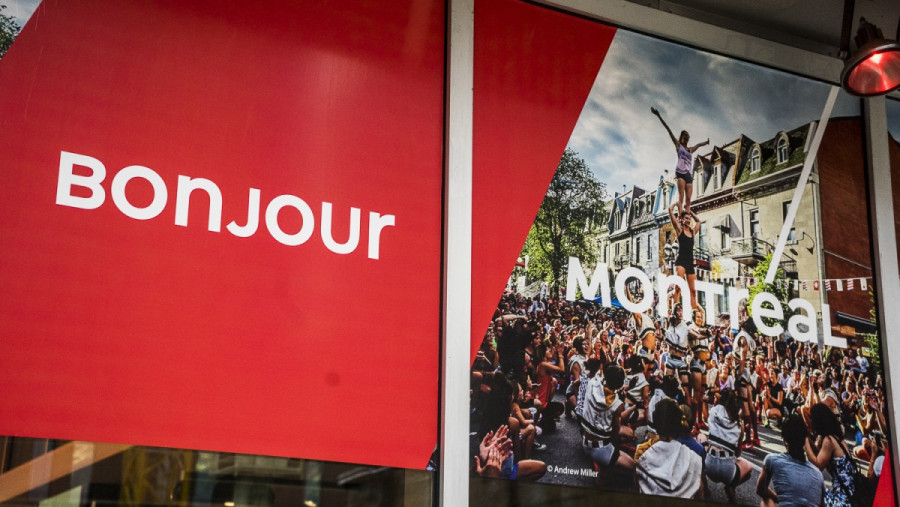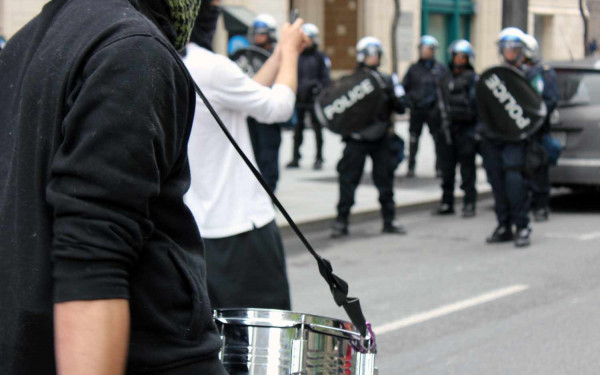The “Bonjour-Hi” Debate Misses the Point Entirely
We Need Cooperation in a Bilingual Province
In light of the provincial government encouraging businesses to use a French-only greeting with their clients, tensions are high within the anglophone and francophone communities here in Montreal.
“Bonjour-Hi” has lost a little bit of itself, dropping the “hi” in favour of what the Quebec government believes to be a more warm and welcoming “Bonjour,” and apparently it’s a big deal. But should it be as big of a deal as it’s being made out to be?
It seems a little silly, doesn’t it, that two whole cultures can feel affronted by the use or nonuse of a simple two-letter word?
Leader of the Parti Quebecois Jean-Francois Lisée has deemed the phrase an “irritant and example of galloping bilingualism.” What makes it an irritant is not the phrase itself, but the government calling it such.
The Quebec government is demonizing a social convention, something intended to make customers feel welcome. They’ve made the population afraid of something as small and non confrontational as the word “hi,” in a petty political move reminiscent of 2013’s “pasta-gate” when Montreal restaurant Buonanotte was made to change its menu, which listed pasta, among other italian dishes, without a french translation alongside them.
This motion has made a simple phrase, designed to be polite and inclusive of both of the city’s languages, symbolic of repression for many.
The Quebec legislature is acting as if the word “hi” represents a total takeover of the english language, while the population continues to speak a french littered with anglicisms like “cool” and “lunch.”
It’s frightening really, almost reminiscent of a police-state, that Quebec has chosen to try to dictate exactly what should be said by an employee to a customer.
What happened to freedom of expression? Should an individual not be free to greet someone in the way they choose, regardless of language politics?
I’m an anglophone, but I’ve always made the effort to speak French when out shopping or dining, as French is the official language. Some anglophones aren’t bilingual but that shouldn’t mean they aren’t welcome to speak English to employees.
We live in a bilingual city, and many businesses have fully bilingual employees. They will speak to you in English if you’re more comfortable with that. Let’s be real, they just want to make a sale and get you out of there.
So to say the removal of the word “hi” is an attack on the anglophone community is an overstatement.The Quebec government believes they’re doing the right thing, and simply protecting their language and culture. Believe it or not, they’re not trying to drive us out of the province.
We’ve seen often frustrating efforts to legislate the interaction of the two languages in public spaces, like with the rules dictating the font size of English translations on menus, businesses, and road signs. It sucks, but it’s the price of harmony. It’s certainly not worth starting a fight over, at the cost of the sometimes delicate harmony between the communities.
Whether you’re greeted with “bonjour” or “bonjour-hi”, you are equally welcomed by employees, and fear not, you will most likely be served in English if you respond to their greeting with “hi” or “hello,” so it’s definitely not worth fussing over.
The bottom line is that being a bilingual city involves a certain amount of cooperation between the two languages.
The Quebec government shouldn’t be making a big deal out of a simple greeting as political fodder, and the anglophone population should realize how much Quebec’s culture means to the francophone population and recognize that at the end of the day, it’s only a greeting. It’s not that big a deal.






